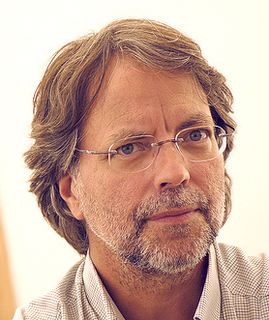A Quote by Khalil Gibran
He who seeks ecstasy in love should not complain of suffering.
Related Quotes
And the fear of not being is born in that space. But in meditation, when this is understood, the mind can enter into a dimension of space where action is inaction. We do not know what love is, for in the space made by thought around itself as the me, love is the conflict of the me and the not-me. This conflict, this torture, is not love. Thought is the very denial of love, and it cannot enter into that space where the me is not. In that space is the benediction which man seeks and cannot find. He seeks it within the frontiers of thought, and thought destroys the ecstasy of this benediction.
The Lord loves us so much that He suffered for us on the Cross; and His suffering was so great that we can't comprehend it. In the same way our spiritual pastors suffer for us, although we often don't see their suffering. The greater the love of the pastor, the greater his suffering; and we, the sheep, should understand this, and love and honor our pastors.
... Grief is selfish. It is indulged in for self-gratification, not for love. Cosmic man knows the beauty and unreality of death. Sympathy for the afflicted makes a reality of the affliction by its recognition as an infliction, while sorrow for the loss of anything, or for the »unfortunate« condition of anybody, is forgetful of the beauty and abundance of all-giving God and Nature. The Mind of God knows but one unchanging emotion - ECSTASY - the ecstasy of Love - the ecstasy which has its beginnings in an inner joyousness of one who is far on the road to the discovery of his immortal Self.
Love is reckless; not reason. Reason seeks a profit. Loves comes on strong, consuming herself unabashed. Yet in the midst of suffering love proceeds like a millstone, hard surfaced and straight forward. Having died to self interest, she risks everything and asks for nothing. Love gambles away every gift God bestows. Without cause God gave us Being; without cause give it back again. Gambling yourself away is beyond any religion. Religion seeks grace and favor, but those who gamble these away are God's favorites, for they neither put God to the test nor knock at the door of gain and loss.
I have sought love, first, because it brings ecstasy – ecstasy so great that I would often have sacrificed all the rest of life for a few hours of that joy. ... I have sought it, finally, because in the union of love I have seen, in a mystic miniature, the prefiguring vision of the heaven that saints and poets have imagined.
Each of us seeks peace of mind, but we sometimes fear that it means giving up excitement and ecstasy. Peace sounds like contentment, which sounds like settling, letting the fire go out. Actually, peace of mind allows you to go more deeply into the world and consequently to experience more excitement and ecstasy. The fire burns brighter, fueled by awareness instead of anxiety.





































